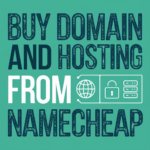When it comes to hosting your website, the choice between managed and unmanaged hosting can significantly impact its performance, security, and overall management. Namecheap, a leading provider of web hosting solutions, offers both managed and unmanaged hosting options, each with its own unique features and benefits. In this article, we’ll explore the key differences between these hosting types, helping you determine which one is the best fit for your Namecheap hosting needs.
Key Takeaways
- Managed hosting offers a hands-off approach, with the hosting provider handling server maintenance and support, while unmanaged hosting requires users to manage the server themselves.
- Choosing the right hosting solution depends on factors such as technical expertise, website complexity, and traffic requirements.
- Managed hosting is typically more suitable for users who prioritize ease of use and reliability, while unmanaged hosting offers greater control and flexibility for experienced users.
- Costs can vary significantly between managed and unmanaged hosting, with managed hosting generally being more expensive due to the additional services provided.
- Evaluating your specific needs and the trade-offs between managed and unmanaged hosting is essential to selecting the most appropriate Namecheap hosting plan for your website.
Introduction to Managed and Unmanaged Hosting
When it comes to online hosting, the choice between managed and unmanaged hosting can have a significant impact on the success of your website. Understanding the key differences between these two hosting options is crucial in ensuring you select the most suitable solution for your needs.
Defining Managed and Unmanaged Hosting
Managed hosting refers to a service where the hosting provider handles the technical aspects of server management, including tasks like software updates, security patches, and server maintenance. In contrast, unmanaged hosting, also known as self-managed or DIY hosting, puts the responsibility of server administration directly on the user or website owner.
The Importance of Choosing the Right Hosting Solution
The decision between managed and unmanaged hosting can greatly influence the performance, security, and overall management of your website. Selecting the appropriate hosting option can mean the difference between a seamless online presence and a constant battle with technical challenges. By understanding the unique characteristics of each hosting type, you can make an informed choice that aligns with your website’s needs and your own technical expertise.
“The right hosting solution can make or break your website’s success. Choosing wisely is essential for a smooth and secure online presence.”
In the sections that follow, we’ll delve deeper into the world of managed and unmanaged hosting, exploring their key features, advantages, and the scenarios where each option may be the best fit.
Understanding Managed Hosting
When it comes to web hosting, managed hosting can be a game-changer for website owners. With Namecheap‘s managed hosting solutions, you can enjoy a hassle-free experience that takes the burden of server management off your shoulders. Let’s dive into the key features and advantages of managed hosting.
Key Features of Managed Hosting
Managed hosting providers, such as Namecheap, offer a comprehensive suite of services to ensure your website’s smooth operation. This typically includes:
- Automatic software updates and security patches to keep your website protected
- Proactive server monitoring and maintenance to minimize downtime
- Scalable resources to accommodate your website’s growth
- Dedicated technical support to assist you with any issues that may arise
Advantages of Managed Hosting
By opting for managed hosting, you can enjoy a range of benefits that can help your website thrive:
- Enhanced Security: Managed hosting providers prioritize robust security measures, safeguarding your website from potential threats and cyberattacks.
- Improved Performance: With managed hosting, your website will benefit from optimized server configurations, ensuring faster load times and a smoother user experience.
- Reduced Maintenance Burden: By entrusting your server management to the experts, you can focus on developing your business and content, rather than dealing with technical complexities.
- Scalability: Managed hosting plans often offer the flexibility to scale your resources as your website grows, ensuring that your online presence can keep up with your evolving needs.
Overall, managed hosting from providers like Namecheap can be an excellent choice for website owners who value reliability, security, and a hands-off approach to server management. By leveraging the expertise of the hosting provider, you can free up time and resources to concentrate on the core aspects of your business.
“Managed hosting takes the stress out of running a website, allowing me to focus on growing my online presence.”
Exploring Unmanaged Hosting
While Namecheap and other providers offer managed hosting solutions, unmanaged hosting, also known as self-managed or DIY hosting, presents a unique set of characteristics that may appeal to certain website owners. This hosting option places a greater level of control and responsibility in the hands of the user, allowing for a more customized approach to website management.
Key Characteristics of Unmanaged Hosting
Unmanaged hosting is often associated with shared hosting plans, where users have direct access to the server’s resources and configuration. This hosting type offers several distinct features:
- Greater control over the server environment and website setup
- Increased flexibility in software and application installations
- Responsibility for tasks like security updates, backups, and performance optimization
- Requirement of higher technical expertise to manage the hosting environment
For website owners with a strong technical background or those seeking a more hands-on approach to their online presence, unmanaged hosting can provide a compelling alternative to the fully managed hosting options.
“Unmanaged hosting puts the power in the hands of the user, but also the responsibility.”
By understanding the key characteristics of unmanaged hosting, website owners can make an informed decision on the hosting solution that best fits their needs and technical capabilities.
Comparing Managed and Unmanaged Hosting
When it comes to web hosting, the choice between managed and unmanaged solutions can have a significant impact on your website’s performance, cost, and overall management. Let’s dive into the key differences between these two hosting options to help you make an informed decision.
Cost Differences
One of the primary factors to consider is the cost. Typically, managed hosting plans from providers like Namecheap tend to be more expensive than unmanaged or shared hosting options. This is because managed hosting includes a comprehensive suite of services, such as server maintenance, security updates, and expert technical support.
On the other hand, unmanaged hosting, like Namecheap‘s shared hosting plans, often come at a lower price point. However, the responsibility for managing and maintaining the server falls on the website owner, which may require additional time and technical expertise.
Control and Flexibility
When it comes to control and flexibility, unmanaged hosting offers website owners a greater degree of control over their server environment. This means you have the freedom to configure and customize the server to suit your specific needs, which can be beneficial for experienced developers or those with a strong technical background.
In contrast, managed hosting solutions from Namecheap or other providers often come with a trade-off in terms of control, as the hosting provider typically handles the majority of the server management tasks. However, this can be advantageous for those who prefer a hands-off approach or lack the technical expertise to manage a server themselves.

Ultimately, the choice between managed and unmanaged hosting depends on your specific needs, technical expertise, and the resources you’re willing to allocate to server management. By carefully weighing the cost differences and the level of control and flexibility you require, you can make the best decision for your website’s success.
When to Choose Managed Hosting
Managed hosting can be the optimal choice in various scenarios, especially for individuals or businesses that require a more hands-off approach to server management. If you’re considering Namecheap hosting or any other managed hosting solution, it’s essential to understand the situations where it may be the best fit.
One of the primary factors to consider is your level of technical expertise. Managed hosting is particularly beneficial for those who lack extensive experience in server administration, security, and software updates. By outsourcing these tasks to the hosting provider, you can focus on your core business activities without worrying about the technical complexities of maintaining your website or application.
Another key consideration is the complexity of your website or application. If your online presence involves features such as e-commerce, multimedia content, or complex database integrations, managed hosting can provide the necessary support and expertise to ensure optimal performance and security.
- For businesses with limited in-house IT resources, managed hosting can be a cost-effective solution, as it eliminates the need to hire dedicated server administrators or invest in expensive hardware and software.
- Websites or applications that experience high traffic or sudden spikes in usage may benefit from the scalability and reliability offered by managed hosting providers, who can handle the infrastructure and resource management on your behalf.
“Managed hosting is an ideal choice for businesses that want to focus on their core competencies without the burden of server management.”
By choosing Namecheap hosting or another reputable managed hosting provider, you can enjoy the peace of mind that comes with having a team of experts monitor, maintain, and secure your online presence, allowing you to devote your time and resources to driving business growth and innovation.
When to Choose Unmanaged Hosting
While managed hosting offers a comprehensive suite of services, unmanaged hosting may be the better choice for experienced website owners who prefer a higher level of control over their hosting environment. Unmanaged hosting, often referred to as shared hosting, is a popular option among tech-savvy users who have the necessary skills to handle server management tasks on their own.
Suitable for Experienced Users
Unmanaged hosting from providers like Namecheap is an excellent choice for website owners who have a strong understanding of server management and technical aspects of website administration. These individuals are comfortable with tasks such as software installation, configuration, security updates, and troubleshooting, and they prefer to have the freedom to customize their hosting environment to suit their specific needs.
For experienced users, unmanaged hosting can provide a cost-effective solution that allows them to take full control of their website’s infrastructure. This level of control can be particularly beneficial for developers, online entrepreneurs, and small business owners who require a high degree of flexibility in their hosting setup.
“Unmanaged hosting is the perfect choice for tech-savvy website owners who want to take the wheel and customize their hosting environment to their heart’s content.”
When paired with a reliable shared hosting provider like Namecheap, unmanaged hosting can offer a balance of affordability, performance, and customization options that cater to the needs of experienced users.

Factors to Consider When Choosing a Hosting Solution
When selecting the right hosting solution for your website, it’s crucial to consider several key factors. The choice between managed and unmanaged hosting can have a significant impact on the success and performance of your online presence. Let’s explore the essential elements you should evaluate.
Technical Expertise and Support Requirements
One of the primary considerations is your level of technical expertise and the support requirements for your website. If you have a strong technical background and feel comfortable handling server configurations, software updates, and troubleshooting, an unmanaged hosting plan like Namecheap shared hosting may be a suitable option. However, if you prefer a more hands-off approach and require more comprehensive support, a managed hosting solution could be the better fit.
Website Complexity and Traffic
Another crucial factor is the complexity of your website and the anticipated traffic levels. If you have a relatively simple website with moderate traffic, a hosting plan from a reputable provider like Namecheap may be sufficient. However, if you anticipate significant traffic spikes or operate a complex, resource-intensive website, a managed hosting solution may offer the scalability and specialized support you need to ensure optimal performance and reliability.
“The right hosting solution can make or break the success of your website. Choose wisely to ensure your online presence thrives.”
By carefully considering your technical expertise, support requirements, website complexity, and traffic patterns, you can make an informed decision and select the hosting solution that best meets the needs of your business or personal project.
Conclusion
In our exploration of Namecheap hosting solutions, we’ve delved into the distinct differences between managed and unmanaged hosting. Managed hosting, with its comprehensive suite of features and hands-off approach, is an excellent choice for those seeking a hassle-free online presence. Unmanaged hosting, on the other hand, offers greater control and flexibility, making it an attractive option for experienced users who prefer to manage their hosting environment.
When selecting the right hosting plan, it’s important to assess your website’s needs, your technical expertise, and your desired level of involvement in the hosting process. Managed hosting is ideal for those seeking a reliable, secure, and well-maintained platform, while unmanaged hosting caters to those who have the skills and resources to handle server administration tasks.
Regardless of your choice, Namecheap remains a trusted provider of high-quality hosting services, offering a range of options to suit the diverse needs of businesses and individuals. By understanding the nuances between managed and unmanaged hosting, you can make an informed decision that aligns with your Namecheap hosting requirements and ensures the long-term success of your online endeavors.
FAQ
What is the difference between managed and unmanaged hosting?
Managed hosting is a service where the hosting provider takes care of the server management tasks, such as software updates, security, and performance optimization. In contrast, unmanaged hosting (also known as self-managed or DIY hosting) requires the website owner to handle these server management responsibilities.
What are the key features of managed hosting?
Managed hosting typically includes features like automatic software updates, server monitoring, security management, daily backups, and 24/7 technical support. This hosting option is designed to provide a hands-off experience for website owners, allowing them to focus on their core business activities.
What are the advantages of managed hosting?
The main advantages of managed hosting include improved website performance, enhanced security, reduced maintenance hassle, and access to expert technical support. This hosting option is often preferred by website owners who lack the technical expertise or time to manage their own servers.
What are the key characteristics of unmanaged hosting?
Unmanaged hosting, also known as self-managed or DIY hosting, is characterized by the website owner taking full responsibility for server management tasks, such as software updates, security configurations, and performance optimization. This hosting option provides a higher level of control and flexibility, but also requires more technical expertise from the website owner.
How do the costs of managed and unmanaged hosting differ?
Managed hosting is generally more expensive than unmanaged hosting, as the hosting provider takes on the additional responsibilities of server management. Unmanaged hosting, on the other hand, often comes at a lower price point, but requires the website owner to handle all server-related tasks themselves.
When is it appropriate to choose managed hosting?
Managed hosting is often the better choice for website owners who lack extensive technical expertise, have complex websites with high-performance requirements, or need reliable 24/7 support. It allows them to focus on their core business activities while the hosting provider handles the server management tasks.
When is unmanaged hosting the better option?
Unmanaged hosting is typically a good fit for experienced website owners who have the technical skills and time to manage their own servers. This hosting option provides a higher level of control and flexibility, which can be beneficial for those who want to fine-tune their server configurations or have specific hosting requirements.
What factors should I consider when choosing a hosting solution?
When choosing a hosting solution, key factors to consider include your technical expertise, the support requirements of your website, the expected traffic levels, and your budget. Evaluating these factors will help you determine whether managed or unmanaged hosting is the better fit for your Namecheap hosting plan.

